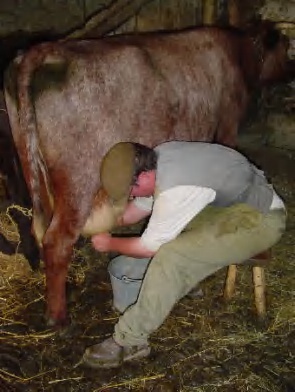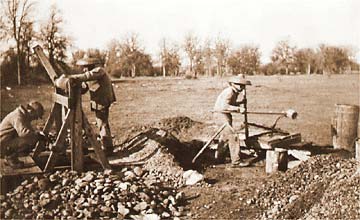Be Grateful, Believe & Turn from Your Sins

The First Sunday of Lent
Today’s Readings: Dt 26: 4-10; Ps 91; Rom 10: 8-13; Lk 4: 1-13
The great prophet and lawgiver, Moses, lived 4,000 years ago. That’s why our first passage from Deuteronomy today is so amazing. Look how little has changed in the way people worship and relate to God.
Then, like now, the priest received the collection basket and set it before the altar of the Lord.
Then, like now, the people were reminded how they were rescued and blessed by God.
Moses said that his father was a wandering Aramean. All of our ancestors, without exception, were immigrants to this country—even those who came over on the Mayflower. Our forebears, often on blind faith alone, came from their respective “old countries” to escape poverty, famine, pogroms, oppression, injustice… to seek opportunity and a better way of life.
And America received us and became a conduit for God’s blessings. That’s why the old songs remind us: God bless America… My country ’tis of thee, sweet land of liberty… O beautiful for spacious skies.
And we, too—like the Hebrews—became a great nation.
Just as Moses says, it is important that we remember our roots of poverty and pain and despair… because this leads us to remember that it was our good and loving God who brought us out of our own Egypts with his strong hand and outstretched arm—to remember he gave us our own land of milk and honey.
And if that weren’t enough, he promises an even more spectacular realm in the future: the heavenly home that has been prepared for us from all eternity. A place of absolute joy and love and fulfillment.
When we put it so simply, how can our hearts not be stirred with gratitude?
The trouble is, lots of times, people forget to give thanks. How many people get upset because their grandchildren don’t send them thank-you notes for birthday or Christmas gifts? Brides and grooms take years to say thanks for a wedding present. Forget courtesy or civility; people who should be grateful often act as though they are entitled to whatever kindnesses come their way!
There was an elderly man lying in a hospital bed. His wife of 55 years was at his bedside. He opened his eyes groggily and in a hoarse voice he whispered, “Is that you, Evelyn, at my side again?”
“Yes, dear,” she answered with a smile.
He said to her softly, “Remember years ago when I was in the Veterans’ Hospital? You were with me then. You were with me when we lost everything in that fire. And Evelyn, when we were so poor—you stuck with me then, too.”
The man sighed and said, “I tell you, Evelyn, you’re bad luck.”
Ah yes. Gratitude.
In fact, we all should be grateful to God, because his blessings extend to each and every one of us. Paul writes to the Romans: There is no distinction between Jew and Greek. God doesn’t care who you are, where you come from, who your Daddy is. We are simply a single soul who meets our one God.
St. Paul continues: If you confess with your mouth that Jesus is Lord and believe in your heart that God raised him from the dead, you will be saved.
This week, we begin the holy and privileged season of Lent. Our first Lenten task is to “re-center” ourselves… to stir back up the embers of our gratitude… to remember: Yes, God did this for me and I should be grateful… I am grateful.
And our second Lenten task is to refocus our belief: Yes, I believe that Jesus is Lord. I’ll say it out loud: “JESUS IS LORD!” I mean it! O Lord, help my unbelief. I do believe he rose from the dead.
Lastly, our final Lenten task is to try to turn away in our lives from all the things that interfere with and impede our gratitude and belief. This is all the stuff we call sin.
As Christ tells us again and again and again, humanity’s biggest immorality is injustice… hatred… condemnation of our brothers and sisters… judgment and rejection of others. And the worst hypocrisy is when it’s done in the name of religion. We’ve got to train ourselves, with the help of the Holy Spirit, to forgive… to bless everyone, including our enemies… to be patient and loving and generous and kind.
Instead of giving up beer or chocolate or TV this Lent, why not give up your prejudice or your sarcastic mouth or your ingratitude?
And having set these before the Lord, your God, you shall bow down in his presence.



